Brief
Sep 17 2022
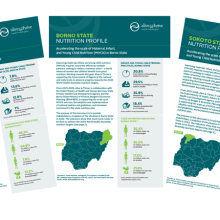
Nigeria Nutrition Profiles for Bauchi, Borno, Kaduna, Kano, Lagos, Sokoto and Yobe states
In 2022, Alive & Thrive expanded its activities in Nigeria. These nutrition profiles provide stakeholders a snapshot of the situation in each of the states where Alive & Thrive is now working with government and other partners to improve MIYCAN outcomes.
Brief
Sep 30 2021
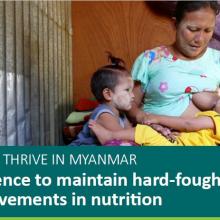
Myanmar Country Brief: Resilience to maintain hard-fought improvements in nutrition
As a result of the illegal coup d’état by the military on February 1st, 2021, a humanitarian crisis is currently unfolding in Myanmar. With fuel and food prices increasing dramatically, millions of households are struggling to meet their basic food and healthcare needs.
Brief, Handout
Oct 28 2020
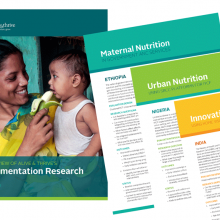
An overview of Alive & Thrive's implementation research
Alive & Thrive's implementation research spans its program areas, seeking to answer "how" to implement effective interventions and policies. Active studies are detailed in the attached documents.
Brief
Aug 20 2020
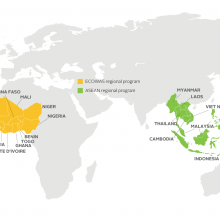
Southeast Asia and West Africa regional Cost of Not Breastfeeding briefs
Brief, Handout, Poster/Graphic, Report
Sep 19 2019
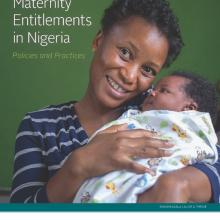
Maternity Entitlements in Nigeria: Policies and Practices
Despite globally accepted knowledge on the benefits of breastfeeding and the contribution of maternity entitlements to increasing rates of exclusive breastfeeding, there has been little research on how maternity or paternity leave is practiced in Nigeria, the labour force’s level of compliance, o
Brief
Oct 15 2017
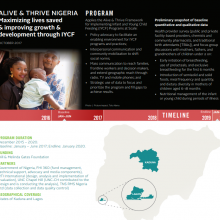
Maximizing lives saved & improving growth & development through IYCF in Nigeria
This information card shares a preliminary snapshot of quantitative and qualitative data from a health provider survey (public and private facility-based providers, chemists and community pharmacists, and traditional birth attendants), and focus group discussions with mothers, fathers, and grandm

